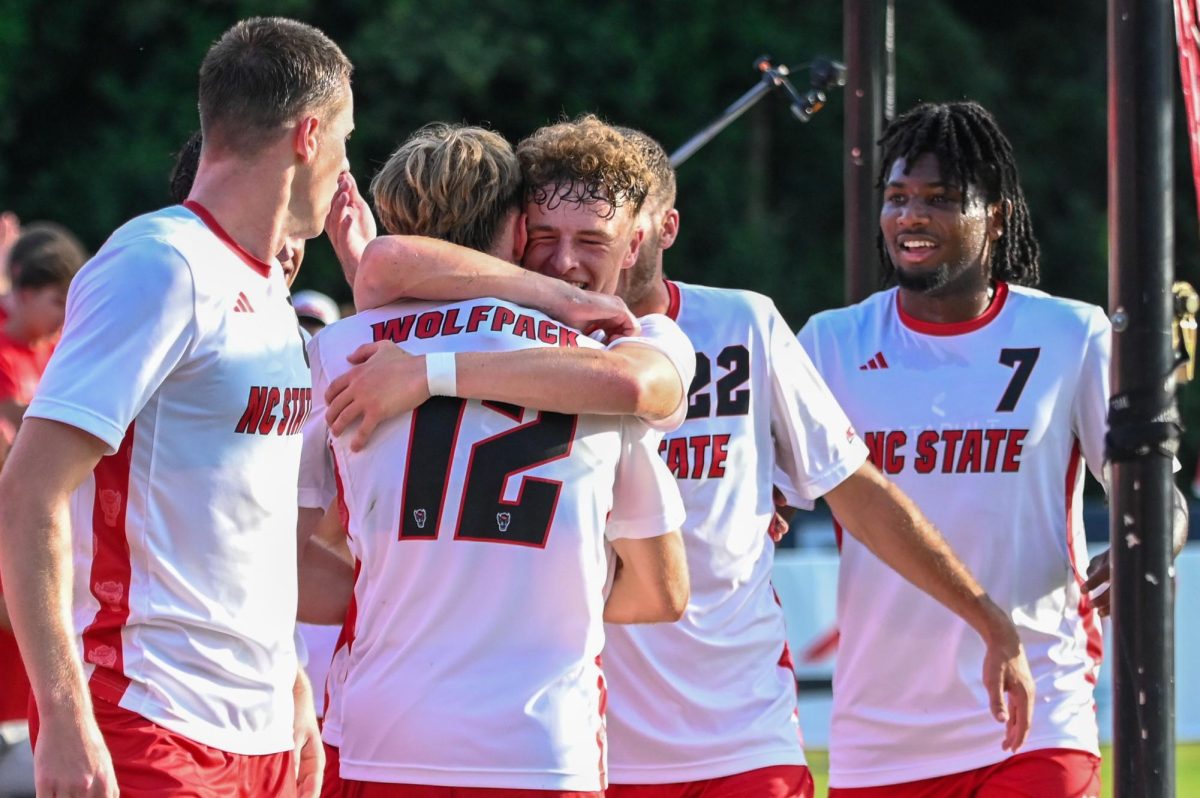A professor from North Carolina A&T explained the way African-American milestones in athletics are used to shape and interpret African-Americans in history in a lecture titled “Who’s on First? Sports, Philosophy and the Concept of African-American ‘Firsts’.”
The Office of Institutional Equity and Diversity hosted Stephen C. Ferguson, an associate professor in the Department of Liberal Studies at N.C. A&T
“If we teach people about African-American firsts, they can’t be racist anymore – they have facts,” Ferguson said.
He said the way in which facts are presented strongly impacts the views people have about African-Americans.
Less than a week into Black History Month, Ferguson discussed the way African-American firsts in sports are regarded in American society. Ferguson said “[They] should be the beginning but not the end; the focal point but not the only point.”
Ferguson highlighted famous and influential black athletes, which he described as a “small sampling of iconic figures”.
The lecture further explained some of the misconceptions Ferguson believes surrounds African-American firsts in athletic history. His first example brought attention to Darryl Hill, the African-American football player, who is widely thought to be the first African-American to play in the Atlantic Coast Conference at a Division I school in the South.
Ferguson explained the actual first was N.C. State ACC tennis player Irwin Holmes, not Hill.
According to Ferguson, far too often, value is placed on popular but incorrect history.
“Does every incident where blacks break through the color line represent historical progress?,” Ferguson said.
There are various African-American firsts thought to be accurate that weren’t actually first, according to Ferguson.
What Ferguson calls, “contributionism”, is a reason for the alarming but common misconceptions about African –American firsts in history. He defines “contributionism” as the desire to emphasize inclusion.
“What value assumptions do we make when we access history?” Ferguson said.
He emphasized the importance of being mindful when looking at the history of sports, and more importantly, the broader conceptions of African-American history.
Following the lecture, Ferguson took a question from the audience asking how to identify misconceptions in African-American history, which prompted him to explain the proper approach of determining factual history.
“I would reject this social consensus model that dominates, particularly in sports,” said Ferguson. “We should focus on making a conceptual distinction between equality and fairness”.
Alexandra Blough, a sophomore in sport management, said the lecture made her re-evaluate the way the thought about the history of sports.
“I was surprised to see how much I didn’t know about the way African-American firsts in history are conceptualized,” said Blough. “It’s interesting to think about racism being a product of ignorance, and that we use history to present information in a certain way.”
Ferguson is currently teaching a course and doing research on the philosophy of sports, as well as working on a book focusing on a philosophical analysis of Afrocentrism.




